Renewing Democracy – Long Shadow of the Financial Crisis: Social Strains and Economic Recovery
2. October 2018 / 12:30 Nordic Hotel Forum, Viru väljak 3, TallinnIn the first part of the forum Heather Grabbe, Director of the Open Society European Policy Institute and Olli Rehn, Governor of the Bank of Finland, will discuss the social and economical situation in Europe today, its undercurrents and manifestations in actual political choices.
The second part will commence with a short reflection of Ms Grabbe’s and Governor Rehn’s debate into Estonian context, by Tarmo Jüristo, Head of Management Board of Praxis Center for Policy Studies. This introduction will be followed by a discussion panel, joined also by Margit Sutrop, Professor of Practical Philosophy and the founding Director of the interdisciplinary Centre for Ethics at the University of Tartu; political scientist and Associate Professor at Tallinn University Mari-Liis Jakobson and Andreas Kaju, partner at META Advisory Group, leading consultant in pan-Baltic government relations.
The forum will be moderated by Johannes Tralla, journalist at Estonian Public Broadcasting and its Brussels correspondent in 2012-2018.
The working language of the forum will be English, with the option of simultaneous translation into Estonian.
The conference is supported by the Centre for Ethics, University of Tartu’s national programme “Values Development in Estonian Society 2009 – 2013” for the years 2015 – 2020, funded by the Ministry of Education and Research.
Welcome to Tallinn!
Why Tallinn?
Amazing Blend of Old and New
Tallinn never fails to amaze visitors with its historical charm. At its heart is the Medieval Old Town, an area of cobblestone streets, gabled houses, churches and squares that developed here from the 13th to the 15th centuries when Tallinn boomed as a key Hanseatic commercial hub. Old Town has long been the main draw for newcomers – in fact it's so unique that UNESCO added it to its World Heritage List in 1997. Other regions of the city reflect different ages, from the romantic, Tsarist-era Kadriorg Park to the unforgettable, early-20th-century wooden house district of Kalamaja. A modern shopping/business district in the city centre completes the tableau, making Tallinn an amazing blend of old and new.
Historical Meeting Point
Ever since the days of Viking traders Tallinn has been a meeting point for various cultures and nations, so visitors coming from any direction are bound to find something familiar, and something exotic, when they explore the city. Estonia's various rulers – Danish, Livonian, German, Swedish and Russian – have each left their mark on Tallinn's landscape, and their influence can be found reflected in the city's architecture, art and even its restaurant cuisine.
Singing Nation
Estonia loves to showcase its rich culture, especially the traditional mass singing events that define the soul of the nation. Chief among these is the Estonian Song and Dance Celebration, held every five years, which involves as many as 37,000 performers and attracts over 200,000 spectators. There are also a number of major annual events to see including the Jazzkaar International Jazz Festival, Old Town Days, Medieval Days, Tallinn Maritime Days, Birgitta Festival, Tallinn Marathon, Black Nights Film Festival and the Simpel Session skateboard and BMX competition.
Closer than You Think
Tallinn is easy to reach – just a two- to three-hour flight from most European capitals – and once you arrive, getting into town is a snap. Lennart Meri International Airport is only 4 km from the city centre, putting it just ten minutes away from the downtown hotels. The ferry terminals and train station are also located a short distance from the Medieval Old Town. Thanks to its small size and compact layout, Tallinn is easy to explore on foot, eliminating the headaches of bus transfers and taxi rides.
On the Cutting Edge
Tallinn is widely recognised as one of the world’s most technology-oriented cities, offering a range of cutting-edge solutions from e-government to mobile parking. Free Wi-Fi is available just about everywhere, including hotel rooms, conference centres, restaurants, cafés and even public squares and parks, so delegates will never have trouble staying in touch. The city also hosts a dynamic business community, of which tech plays a major part. Tallinn, for example, is home to the world development headquarters of the Internet telephony company Skype.
Green City
For fresh air and relaxation, Tallinn is hard to beat. This small, relatively quiet city boasts an impressive 40 km2 of parks and forests, and has a beautiful, 2-km stretch of sand beach bordering its bay. Visitors can stroll along well-developed seaside pathways, explore the natural beauty of suburban bog trails, take sailing trips to nearby islands or even hit the links at a neighbouring golf course.
Check out also Tallinn Spotted by Locals and Like a Local Guide for the best inside tips, available also for Android and iPhone.
Program & Timetable
Thursday, October 2
12:30 Registration and welcome coffee
13:00 Opening remarks, Mall Hellam, Executive Director, Open Estonia Foundation
13:15 – 14:30 Long Shadow of the Financial Crisis: Social Strains and Economic Recovery
What are the key moments that have defined the long and strong „hangover“ we experience both on the social and the economical scale in Europe? How should the EU prepare for the next (financial) crisis? Among other things, we will discuss the turn to conservatism, social unrest and anger, inequality and the sustainability of the growth-oriented capitalism; the role and accountability of policymakers and citizens.
Heather Grabbe, Executive Director, Open Society European Policy Institute
Olli Rehn, Governor of the Bank of Finland
Moderator Johannes Tralla, journalist at the Estonian Public Broadcasting and its Brussels correspondent in 2012-2018
14:30 – 15:15 Coffee and snacks
15:15 – 16:45 Estonia: State of Affairs
The second part will commence with a short reflection of Ms Grabbe’s and Governor Rehn’s debate in Estonian context. In the light of upcoming elections both on national and European level in spring 2019, where do we stand in comparison to other EU member states? What are the social and economic challenges and threats we face? Is it possible to stay immune against the populist epidemic that seems to ravish through Europe or has each country yet to endure its populists?
Tarmo Jüristo, Praxis Center for Policy Studies, Head of the Management Board
Margit Sutrop, Professor of Practical Philosophy and the founding Director of the interdisciplinary Centre for Ethics at the University of Tartu
Mari-Liis Jakobson, political scientist and Associate Professor at Tallinn University
Andreas Kaju, strategic consultant and partner at META Advisory Group
Moderator Johannes Tralla, journalist at the Estonian Public Broadcasting
Speakers
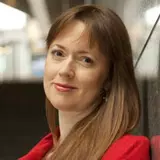
Dr Heather Grabbe
Director of the Open Society European Policy Institute and director of EU affairs
Works to ensure that open society values are at the heart of EU policies and actions, both inside and outside its borders.
From 2004 to 2009 she was senior advisor to then European Commissioner for Enlargement Olli Rehn, responsible in his cabinet for the Balkans and Turkey. Before joining the commission, she was deputy director of the Centre for European Reform, the London-based think tank, where she published widely on EU enlargement and other European issues. Her writing has appeared in the Financial Times, New York Times, Wall Street Journal, and The Guardian, among others.
Her academic career includes teaching at the London School of Economics, and research at Oxford and Birmingham universities, the Royal Institute for International Affairs (Chatham House, London), and the European University Institute (Florence). Grabbe has a PhD from Birmingham University and a BA and MA from Oxford University. She speaks French, Italian, and German.
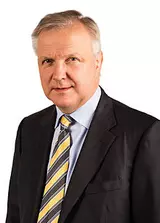
Dr Olli Rehn
Governor of the Bank of Finland
He has been Governor and Chairman of the Board as of 12 July 2018. Governor Rehn is responsible for monetary policy preparation, domestic economic policy, external communications, international affairs and internal audit. Governor Rehn is a member of the Governing Council of the ECB. Previously, he served as the Minister of Economic Affairs in Juha Sipilä's cabinet, as the European Commissioner for Enlargement from 2004 to 2010, and as the European Commissioner for Economic and Monetary Affairs and the Euro of the European Commission from 2009 to 2014.
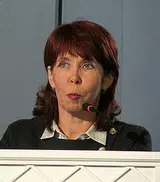
Prof Margit Sutrop
Professor of Practical Philosophy
Head of the Centre for Ethics since it was established in 2001. She holds an undergraduate degree in journalism and a master's in philosophy from University of Tartu, she got her PhD in Philosophy from Konstanz. She is a member of Academia Europaea. Her current research interests include moral and political philosophy, bioethics, business ethics, aesthetics and philosophy of education. From 2013 Margit also serves as the dean of the Faculty of Arts and Humanities. Sutrop works also as an independent ethics expert for the European Commission. For the past 10 years, she has led the Value Development Program in Estonia and has contributed to the Life-long Learing Strategy 2020. Currently, Sutrop is leading a group of experts, summoned by the Ministry of Education and Science, called "Values and Responsibility", which aims to provide a vision on Estonian education, youth work, science and innovation and language development until 2035.
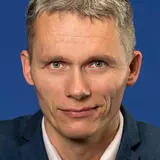
Tarmo Jüristo
Founder and head of SALK
Tarmo Jüristo is a well-known civic activist, columnist, founder and head of SALK (Liberal Citizen Foundation). An active member of Estonian civil society, Tarmo Jüristo was one of the original members to sign Harta12 (a civil initiative focusing on problem areas in state governance) and publicly stood for the ratification of the Registered Partnership Act in autumn of 2014. As a playwright at Von Krahl Theatre and NO99, Tarmo has led two plays that are considered flagships of modern Estonian theatre. He graduated from the University of Tartu with a degree in Finance and Credit and worked in the financial sector, in fields of commercial and investment banking and risk capital management, for 15 years. Currently, he is finishing his PhD in Cultural Studies at the University of Tallinn.
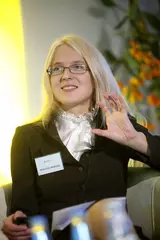
Mari-Liis Jakobson
Ms Jakobson is Associate Professor of Political Sociology at Tallinn University and a researcher for the Estonian contact point of the European Migration Network. She holds an undergraduate degree in journalism and an MA in political science, and in 2014, received a PhD in politics and government from Tallinn University. Her research interests relate primarily to migration, citizenship and populism. In 2012 she acted as principal investigator for the study Populism in the Baltic States, funded by the Open Estonia Foundation.
In addition to academic work, she is also active in the civil society, currently serving on the board of Network of Estonian Nonprofit Organisations, and serves as a regular columnist on the Estonian Public Broadcasting.

Andreas Kaju
A founding Partner of one of Estonia's most successful PA companies META Advisory, which joined the Fipra network as Fipra Estonia in March 2011. He recently worked for clients in Financial Services, Auditing, the Food Industry, Commercial Real Estate, Energy, Healthcare and Media. He began his career working in the Estonian Chamber of Commerce & Industry, one of the largest business organisations in Estonia. In public service, Andreas served as an Adviser to the Prime Minister, Adviser to the Minister of Defence, head of the centre-right conservative party’s parliamentary group staff and as Political Secretary of the party. Andreas is a member of the Estonian NATO Society and a member of the supervisory board of the Estonian Debating Society. Andreas speaks English, Finnish and some Russian as well as his native Estonian.
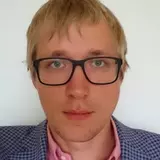
Johannes Tralla
Journalist
Works for the Estonian Public Broadcasting - he is a news anchor and hosts a talk show called "First Studio" every week, featuring politics, economy, culture and other topics. He is also among the co-hosts of "Välisilm", a weekly foreign policy news magazine. Recently, Tralla returned to Estonia after having spent six years as Estonian correspondent in the heart of Europe in Brussels. As Politico stated: "For most Estonians, more than any politician, Johannes Tralla is the face of the EU."